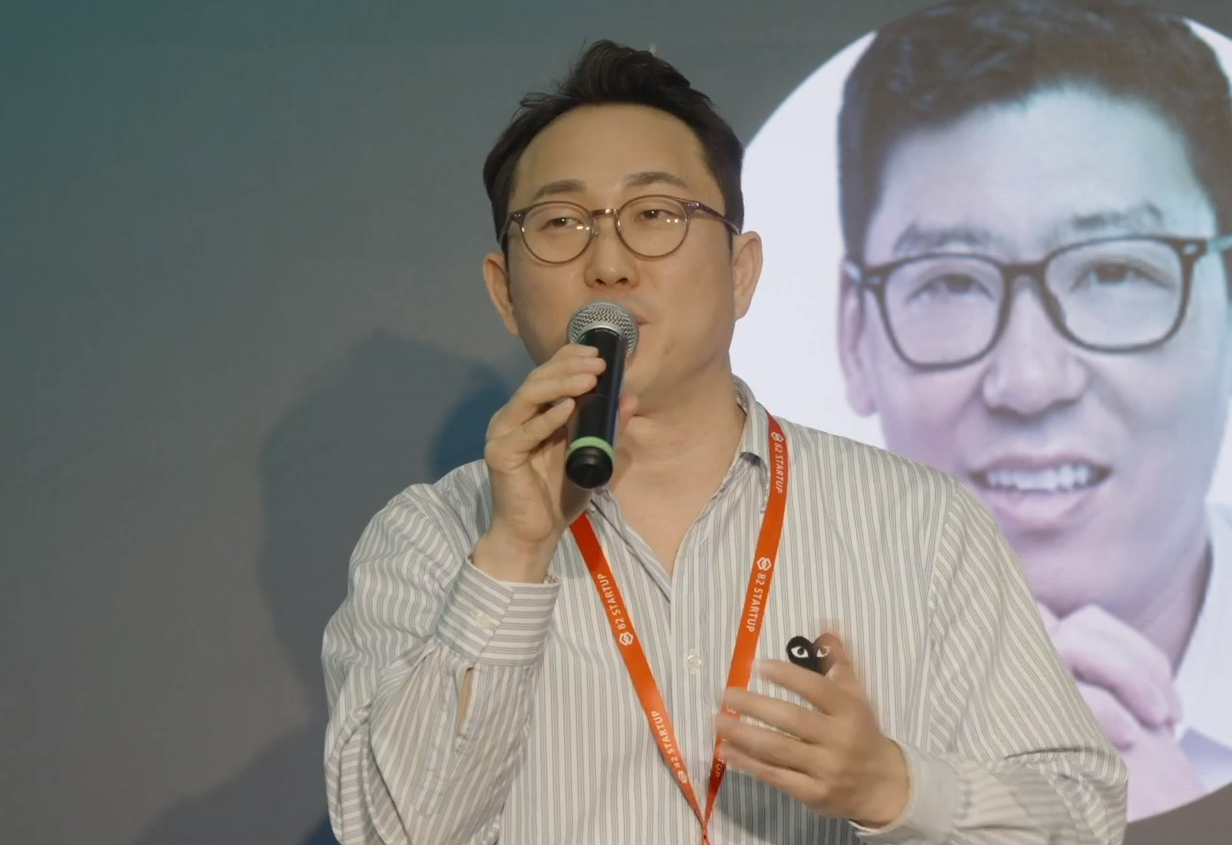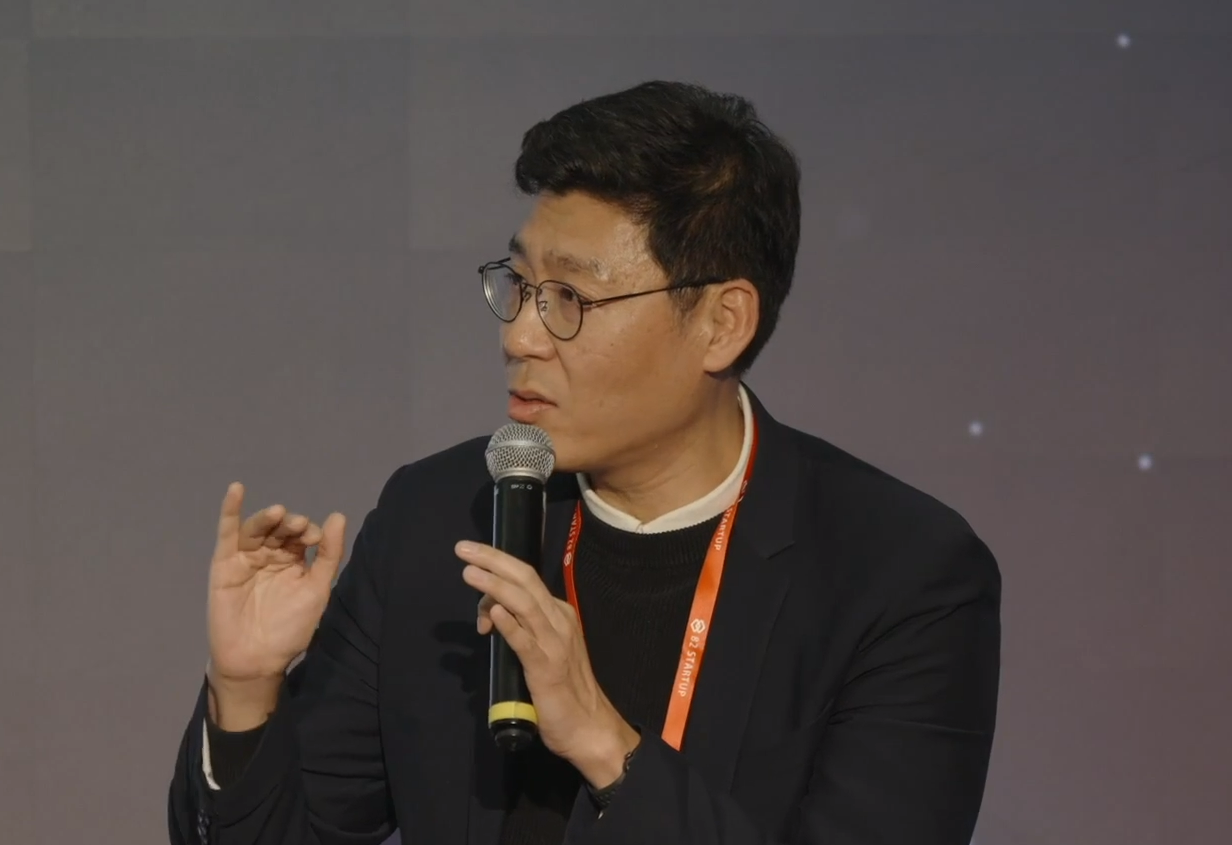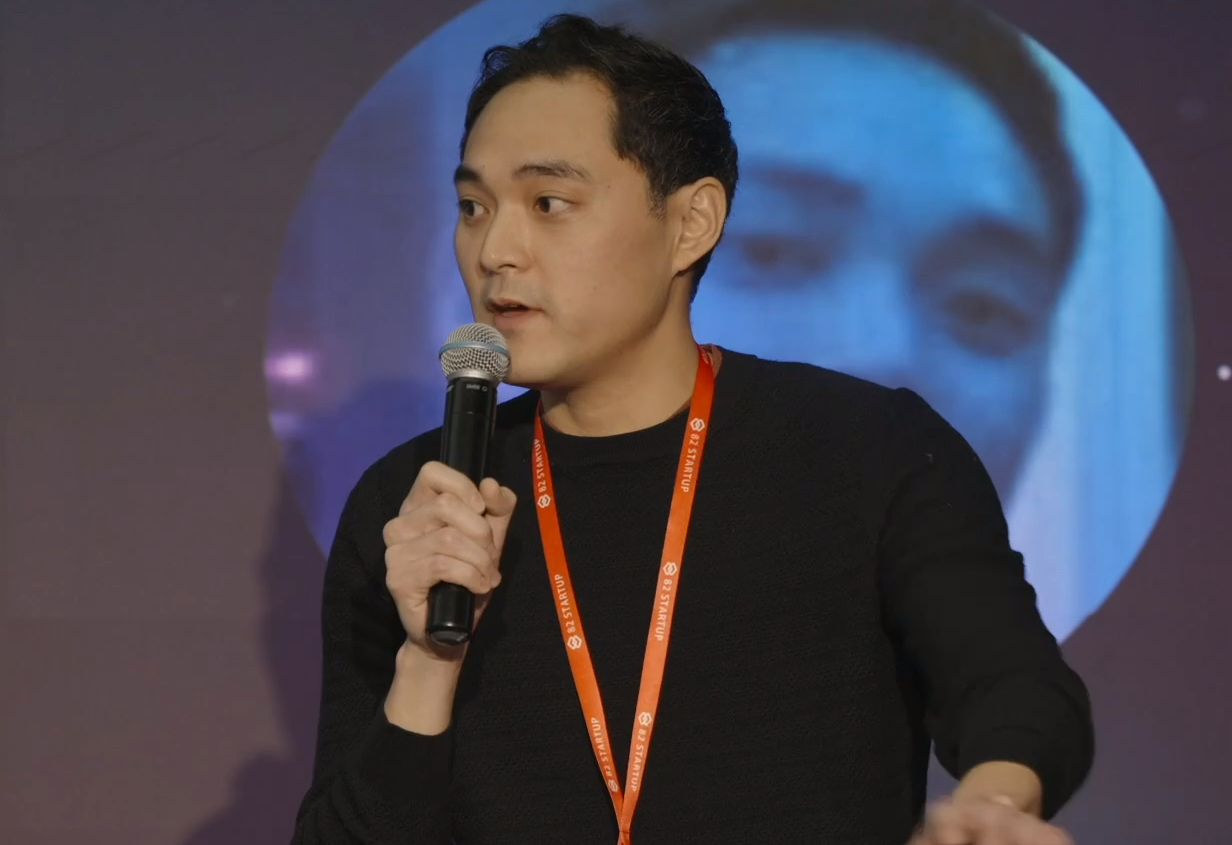A down period for startup investment with opportunities for global expansion.

EO 82 Startup Summit Live +
Session : Q&A With Korean Founders' Take on Global Growth and Global Investment Attraction
Q. Tell us About your Venture Capital Firm
- Jae-wook Kim, Vice President of Atinum Investment
Our investment company is a first-generation venture capital firm founded 34 years ago. We invest in late-stage startups, such as those in their Series C or Series D rounds, rather than early-stage startups. Although we primarily invest in Korea-based startups, we also invest in Korean B2B startups in Southeast Asia and the US. I mainly invest in enterprise software and platform companies.
- John Nahm, Strong Ventures Founder
Strong Ventures started in LA about ten years ago and mainly invests in Pre-Seed and Seed Stage companies, which are in the early stages of funding. 75% of our investment portfolio is comprised of Korean companies. Our investments in American companies focuses on 1.5 and 2nd-generation Korean entrepreneurs, and we mainly invest in companies that globalize Korean products, concepts, and trends. Starting in 2022, we also started investing in European, Southeast Asian, and African companies run by 1.5 and 2nd-generation Korean entrepreneurs.
- Tae-hong Huh, CEO of GS Futures
Our investment company was launched in the midst of the pandemic in 2020 and utilizes Corporate Venture Capital(CVC) to make strategic investments in the US and European markets. We invest in areas such as climate change-related technology, retail, energy, and smart city construction technology. We focus on the US, European, and Australian markets rather than Korea.
Q. It is said that the investment market has been experiencing a downturn. Do you have any advice on strategies for startups to overcome this rough patch?

- Jae-wook Kim, Vice President of Atinum Investment
When it comes to early-stage startups, their revenue models are still unstable and subject to change. Therefore, these companies have to evaluate their business models to ensure that their companies are moving in the right direction.
Companies in the growth phase face a different situation. Since they have more capital, they can recruit talented personnel during these downturns as recruiting competition is not as fierce. Thus, these companies can strategically consider their M&A opportunities with the money they have.
- John Nahm, Founder of Strong Ventures
Currently, I think companies should stick with a lean model. In other words, companies should reduce unnecessary costs. By doing so, companies increase their odds of receiving follow-up funding because a company will be in dire straits if it is not financially healthy. Therefore, I advise that startups do what is necessary to survive the current investment season.
- Tae-hong Huh, CEO of GS Futures
Valuations have risen continuously over the past two years, so it is pertinent to evaluate past valuations before making an investment decision.
Q. Are there any industries that are promising for Korean founders to enter the global market?
- Jae-wook Kim, Vice President of Atinum Investment
It is difficult to pinpoint a specific industry, but in the case of Korean companies, it can be seen that starting a business in the B2B field is more advantageous than B2C. B2C startups may have to overcome culture or language barriers, so the probability of success is comparatively more difficult when entering overseas markets. However, suppose a Korean company creates a product that can creatively solve a problem in a specific industry or company. In that case, I think it can create opportunities in the B2B market in the US and Europe. For example, among the companies we invested in, there is a 3D software company in the fashion field. It would have failed if it only worked with domestic companies, but instead, it targeted the global market. By listening to the issues of global companies such as Louis Vuitton, Nike, and Adidas, this B2B startup has grown into a promising company that can become a unicorn.

- John Nahm, Founder of Strong Ventures
I think it is promising to start a business that globalizes the concepts, products, and trends that originate in Korea. And our company is investing in such a company. Companies like NC Soft and Krafton have succeeded in globalizing Korean games, and companies like Tapas have globalized Korean webtoons. We are watching the increasing global recognition of Korean products, such as makgeolli (a rice-based alcoholic beverage endemic to Korea) and kimchi, which are expected to double in global market share in the future.
- Tae-hong Huh, CEO of GS Futures
There are many successful unicorns in Korea in the B2C field, but B2B has an advantage in going global. Compared to how Western companies conduct B2B sales, Korean companies have a better mindset for flexibility, persistence, and customer service. I think these traits will be more advantageous for sales and expansion.
Currently, there are many supply chain issues in the United States. With the technology and insights of Korean startups, they have a good opportunity to enter the US market. I advise that these startups do so.
Q. What is the most significant role that investors must have after investing in a company?
- Jae-wook Kim, Vice President of Atinum Investment
Investors are equity experts, so an area of expertise they can help with is equity-related development. These investors can provide early-stage companies with their knowledge as they have helped many other startups merge with other companies and/or acquire other startups. Therefore, with my knowledge, I can help startups looking to take the M&A route.
- John Nahm, Founder of Strong Ventures
We help startups receive follow-up fundraising. When startups receive Series A funding, follow-up investors will see their CAP Table. The CAP Table is very important because when investors see it, they will be able to see how much control the previous investors hold over the startup. Therefore, the CAP Table can create problems when startups seek follow-up investments.
For example, if an advisor holds a 20% stake, there may be problems with future investments, so startups should be careful when determining who they receive investments from.
I do fundraising for fund formation, but I have also done a lot of fundraising for startups.
After a Series A funding round, you will be introduced to follow-up investors. Who is on the CAP Table (shareholder list) is very important to receiving future funding. The CAP Table provides information such as who has a majority stake in the company and whose voice carries the most weight. For example, if one advisor holds a 20% stake, there may be problems with future investment attraction, so the CAP Table must be carefully balanced.

- Tae-hong Huh, CEO of GS Futures
In the case of CVC (Corporate Venture Capital), it has various networks at home and abroad, which gives the advantage of being able to easily connect with experts inside the company. Networking can help a lot, but fundraising is vital to a startup's success. Therefore, we try to spend a lot of time working on fundraising with our portfolio companies.
Here's what I felt while attending this event:
- We can form an extensive network and global startup community with Korean-founded startups that are based in Korea and other parts of the world.
- If a startup currently has abundant cash flow, it has opportunities to expand its business through talent acquisition and M&A.
- Staying true to Korean roots is the key to global success. This mantra also applies to the startup world.
